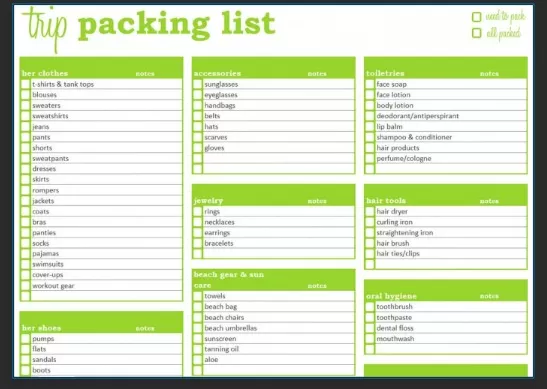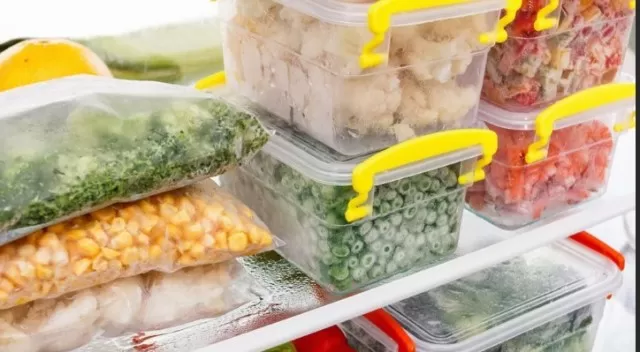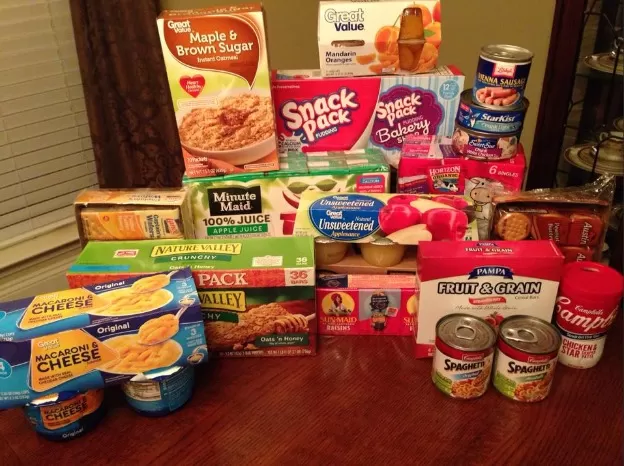Essential Household Supplies for a Comfortable Stay at Home. Facing a stay-at-home order or a period of self-isolation requires careful planning to ensure your family’s safety and comfort throughout the crisis.
The inability to run to the store frequently or visit restaurants presents a unique challenge, but with thoughtful preparation, your family can successfully ride out the extended homestay. Don’t forget to consider the needs of every family member, including your beloved pets, as you put together a comprehensive list of essentials. By considering these various aspects, you can create a comprehensive list that covers the needs of every family member, including your beloved pets. Staying proactive and prepared will help your family weather an extended homestay with resilience and comfort until the crisis passes.
Preparing for Uncertainty: The Importance of Stockpiling Essentials

In uncertain times, like quarantine or emergency situations, being adequately prepared can make all the difference.
While you may not identify as a prepper, taking the advice of FEMA and maintaining a well-stocked inventory of essential items is a wise step toward safeguarding your family’s well-being. The significance of having a comprehensive two-week supply of food and other necessities cannot be overstated.
Amidst any crisis, whether it’s a natural disaster or a widespread health emergency, access to resources might become limited, and normal supply chains could be disrupted.
By taking stock of your family’s needs and building a resilient emergency stockpile, you can gain peace of mind and ensure that you’re ready to face any challenges that come your way.
Staying Prepared: Securing a 30-Day Medication Supply for Your Family
In times of crisis or emergencies, having a well-stocked supply of essential medications is crucial for the health and well-being of your family.
To minimize the need for frequent trips to the pharmacy and ensure continuity of care, the Red Cross recommends obtaining a 30-day supply of prescription drugs and other essential medications that your family regularly uses.
First and foremost, focus on securing a month’s worth of prescription drugs for each family member.
Reach out to your healthcare provider or pharmacist to discuss the possibility of obtaining a larger prescription supply, especially for medications that are vital for managing chronic conditions. By doing so, you can avoid potential disruptions in treatment and maintain stable health during challenging times.
Alongside prescription medications, take stock of over-the-counter remedies that your family frequently relies on.
These may include pain relievers, cold and flu medicines, fever reducers, and any other medications used regularly to manage common ailments. Having these essentials on hand can be a significant relief when minor illnesses strike, and obtaining them in advance helps you avoid the hassle of searching for them during emergencies.
Remember to include vitamins and dietary supplements in your preparation efforts.
Check your current store of multivitamins and protein powders to ensure an adequate supply for the entire family. Vitamins and supplements play a crucial role in supporting immune function and overall health, making them valuable additions to your emergency stash.
Once you’ve gathered the necessary medications and supplements, keep them organized and easily accessible.
Label each medication with its name, dosage, and expiration date, if applicable, to maintain a clear inventory. Also, store them in a cool, dry place, away from direct sunlight and out of reach of children.
Regularly review your medication supply to ensure that nothing expires or runs out unnoticed.
Create a reminder system to check on expiration dates periodically and replace any medications that have reached their expiration date.
By proactively securing a 30-day supply of medications and essential healthcare items, you’re taking a significant step towards safeguarding the health and wellness of your family during uncertain times.
Preparedness is key, and having a well-thought-out plan can bring peace of mind and stability when it matters most.
Smart Choices for Your Freezer: Nutrient-Dense and Delicious Frozen Foods

When it comes to frozen foods, making the most of limited freezer space is essential.
Finding the right balance between nutrient-dense options and catering to your family’s preferences is the key to ensuring you have a well-stocked and enjoyable selection.
To begin, focus on incorporating a diverse range of nutrient-rich options.
Consider stocking up on one- to two-week supplies of both animal and vegetable proteins. Seafood, like fish and shrimp, provides an excellent source of essential Omega-3 fatty acids and protein.
Chicken is another versatile option, rich in lean protein, while veggie burgers and meat substitutes offer plant-based alternatives that can be equally satisfying.
Don’t overlook the goodness of frozen fruits and berries.
These natural gems are not only bursting with flavor but are also packed with vitamins, antioxidants, and fiber. They can be used in smoothies, desserts, or as a healthy snack, adding a touch of sweetness to your meals.
By opting for nutrient-dense frozen foods, you ensure that your family receives essential nutrients, even during challenging times when fresh produce may be scarce or less accessible.
It’s a practical way to maintain a balanced diet and support overall well-being.
As you make your frozen food selections, take into account your family’s preferences and dietary restrictions.
Choose items that align with their tastes to make mealtimes enjoyable even in times of uncertainty. Variety is the key to keep everyone excited about their meals, so explore different frozen food options to discover new favorites.
To make the most of your freezer space, consider proper organization and labeling.
Keeping an inventory of what you have will help you avoid food waste and ensure you use items before their expiration dates. Additionally, investing in stackable containers or reusable freezer bags can maximize the available space and keep your frozen foods well-organized.
In conclusion, frozen foods can be a lifesaver when it comes to maintaining a well-balanced diet and ensuring your family’s satisfaction during emergencies or when access to fresh produce is limited.
By choosing nutrient-dense options that cater to your family’s tastes and properly organizing your freezer, you can make the most of your available space while enjoying delicious and wholesome meals.
Smart Choices for Extended Refrigerated Storage: Nutritious and Long-Lasting Foods
When preparing for an extended stay at home, selecting the right refrigerated foods can make a significant difference in maintaining a well-balanced diet while reducing the need for frequent grocery trips.
Opting for items with extended shelf life ensures you have access to fresh and nutritious options throughout your time at home.
Here are some long-lasting refrigerated foods to consider including in your stockpile:.
Eggs: A versatile and nutritious option, eggs can last for several weeks when stored properly in the refrigerator.
Cabbage: This hearty vegetable stays fresh for an extended period, making it an excellent choice for salads, stir-fries, or soups.
Hard Cheeses: Cheeses like cheddar, gouda, or parmesan have a longer shelf life compared to soft cheeses, making them ideal for both snacking and cooking.
Carrots: Carrots can stay fresh for weeks in the refrigerator and are a great source of vitamins and fiber.
Bacon: When properly refrigerated, bacon can last for an extended period, adding flavor to various dishes.
Deli Meats: Cold cuts such as turkey, ham, or roast beef can be a convenient protein source and have a reasonable shelf life when stored in the refrigerator.
Cooked Sausages: Pre-cooked sausages are not only delicious but also have a longer refrigerator life, making them a convenient meal option.
Yogurt: Opt for plain, unsweetened yogurt, which tends to have a longer shelf life than flavored varieties.
Additionally, consider making a switch to alternative milk options like almond or oat milk.
These plant-based milk alternatives generally have a longer shelf life (up to two weeks) compared to dairy milk, which typically lasts for about a week or less. This switch can help reduce the need for frequent milk purchases and minimize wastage.
As you stock up on refrigerated foods, be mindful of proper storage and organization.
Use clear containers or labels to keep track of expiration dates and ensure you use the oldest items first. Properly managing your refrigerator inventory can help prevent food spoilage and ensure that nothing goes to waste.
By making thoughtful choices and selecting long-lasting refrigerated foods, you can maintain a varied and nutritious diet during extended stays at home while minimizing grocery visits and food waste.
Preparing in advance and being conscious of your family’s preferences will enable you to create delicious and satisfying meals, even in challenging times.
Essential Ready-to-Eat Non-Perishables: A Diverse and Nourishing Stockpile

When building your non-perishable food supply, it’s crucial to prioritize essentials, especially if you have infants or young children.
Begin by ensuring you have an ample stock of baby food and infant formula to meet their specific dietary needs.
Beyond the essentials, consider a range of ready-to-eat non-perishables that provide both nutrition and convenience:.
Shelf-Stable Milk: Opt for boxed or canned milk varieties, such as evaporated milk or UHT (ultra-high temperature) milk, which have a longer shelf life and can be used in various recipes and as a standalone beverage.
Oatmeal Packets: These single-serving portions of oatmeal are not only a quick and nutritious breakfast option but can also be a comforting snack during uncertain times.
Granola: A versatile and energy-packed choice, granola can be enjoyed as a cereal with milk or yogurt or used as a topping for various dishes.
Snacks: Include non-perishable snacks like crackers and popcorn for a satisfying crunch.
Look for options with whole grains for added nutritional value.
Canned Vegetables and Fruits: Canned vegetables and fruits are excellent additions to your stockpile, providing essential vitamins and minerals.
Opt for low-sodium varieties and a variety of fruits and vegetables to maintain a well-balanced diet.
Canned Proteins: Consider adding canned beans, tuna, salmon, or chicken to your pantry.
These sources of protein can be used in various dishes and help create balanced meals.
When selecting non-perishable items, pay attention to expiration dates and rotate your stock regularly to ensure you use items before they expire.
A well-organized pantry with clearly labeled items will help you keep track of your inventory and avoid food waste.
Additionally, consider your family’s dietary preferences and any dietary restrictions when building your stockpile.
Including foods that your family enjoys will make meal planning and preparation more enjoyable during extended periods at home.
Remember to store your non-perishables in a cool, dry place, away from direct sunlight and extreme temperatures.
Proper storage conditions will help maintain the quality and safety of the items for an extended period.
By thoughtfully selecting ready-to-eat non-perishables, you can ensure your family has a diverse and nourishing food supply to rely on during emergencies or unexpected situations.
Planning ahead and having a well-stocked pantry will provide you with peace of mind and the assurance that you can meet your family’s nutritional needs when fresh food options may not be readily available.
*The information is for reference only.